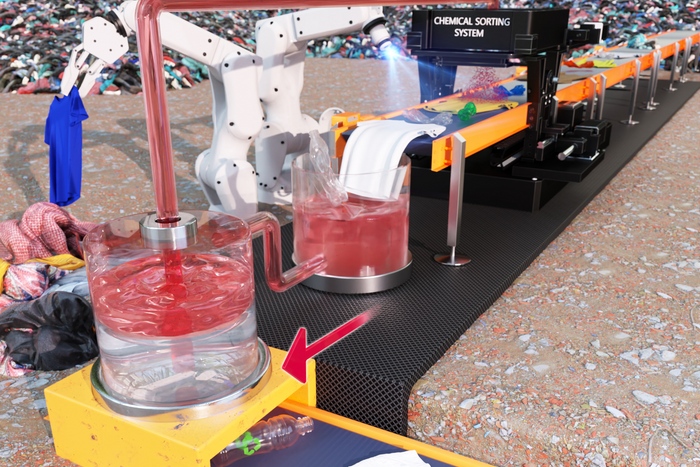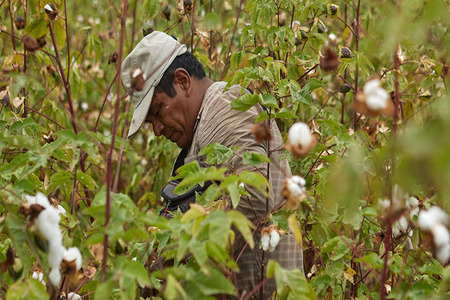
KRICT has developed a breakthrough textile recycling technology
YarnsandFibers News Bureau 2023-03-26 05:24:08 – South KoreaThe clothing industry currently accounts for 10% of worldwide carbon emissions, with approximately 90% of post-consumer fiber waste being disposed of through incineration or in landfills. Since synthetic fiber is not naturally biodegradable, it has become a serious hazard to the environment. Due to its affordability and durability, polyester, which makes up more than half of all fabrics made each year, is the most popular synthetic fiber worldwide.
A research team from the Korea Research Institute of Chemical Technology (KRICT) have developed a novel "chemical sorting" technology to separate polyester from mixed and contaminated waste textiles for recycling. In this method, polyester is separated from used textiles that are thrown away in a polluted or mixed state. In the procedure, a special chemical agent is utilized for the separation, which selectively destroys the chemical relationship between polyester and the dye used to give it its color.
The researchers have also created a brand-new chemical recycling technique that transforms polyester into useful monomers while using less energy than traditional approaches. New polymer materials can then be produced using these monomers.
Presently, the clothing recycling industry sorts used textiles into different material kinds using labor-intensive, inefficient techniques that frequently fail to process homogenous materials.
Using a non-toxic and biodegradable substance, this novel method chemically separates polyester from waste garments. When the substance is applied to textiles, colorants found in polyester are totally removed, but no other materials undergo any appreciable modifications. Then, clean polyester may be extracted from the fabric mashup.
The separation of polyester from mixes of uncolored fabrics is also possible with this technique. Only polyester absorbs colorants when they come into contact with fabric during the sorting process. These colorants can then be removed and utilized as clean feedstock for chemical recycling.
According to the researchers, it may be possible to recycle waste polyester in a circular fashion by breaking down polymer waste into its component parts, similar to how chemicals are recycled.
Team leader, Dr. Joungmo Cho, said that recently, the garment industry had utilized transparent and clean post-consumer PET bottles to make recycled polyester garments. Unfortunately, because the material cannot be recycled repeatedly, this process is not sustainable. Contrarily, the complexity of the constituent materials or the initial amount of impurity in the waste would not be a constraint on their current technology.
Cho added that the system can repeatedly treat the majority of post-consumer textile streams, regardless of whether the targeted ingredients are made directly from petroleum or recovered from waste. As a result, it will significantly advance a circular economy in the plastic and textile industries and help minimize waste in landfills.
Market Intelligence
Ask for free sample Report

experience
Customer Base
dedicated team
Countries Served Worldwide









